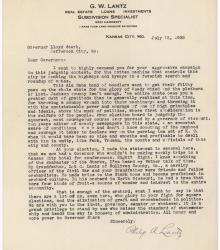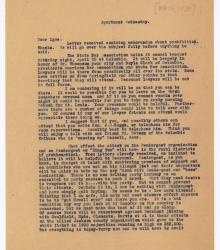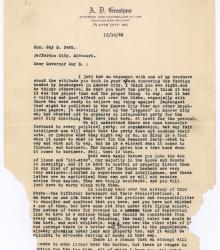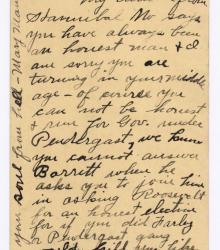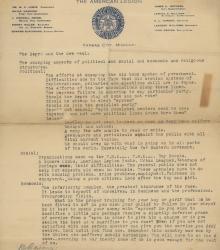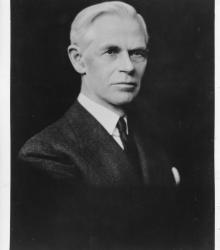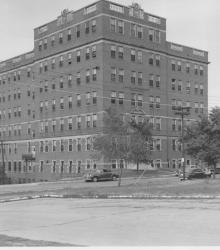Letter from Ashton Keith to Maurice M. Milligan suggesting that if Milligan should run for governor instead of Senate if he wishes to continue working against the Pendergast machine. He also writes that Pendergast "WAS NOT AND IS NOT THE REAL BOSS," and that "the Machine is far more strongly entrenched in Kansas City ...
Pendergast Machine
Letter from Philip A. Lantz to Governor Lloyd C. Stark, lauding him for his work against corruption in Missouri, including his work for James Douglas' election to the Missouri Supreme Court.
Letter from Francis Wilson to William Igoe discussing Wilson's primary race for Missouri Governor against Russel Dearmont, including the newspapers from which he will receive endorsements and how to handle a relationship with Tom Pendergast.
Letter from A. D. Gresham to Governor Park offering support and encouragement to his administration. Gresham offers his thoughts about alcohol policy and taxation, implying that he would be interested in a position on a control board.
Letter to gubernatorial candidate Lloyd Stark excoriating him for pandering to the Pendergast machine as a candidate.
Manuscript in which Milton C. Lewis outlines talking points (possibly for a speech) concerning political, social, and economic issues that affect the Kansas City black community. The first talking point mentions the Pendergast Machine and efforts to dismantle it.
Henry F. McElroy was hand picked in 1926 by boss Thomas J. Pendergast to be Kansas City’s first city manager. This gave Pendergast complete control over Kansas City.
"They did not try to build something ‘good enough for Negroes’ but something as good as money could buy." This is how Chester Arthur Franklin, the Republican founder of The Call newspaper and one of Kansas City’s most prominent black leaders, greeted the newly constructed eight-story building that housed General Hospital No. 2, serving the indigent African American population of Kansas City.

